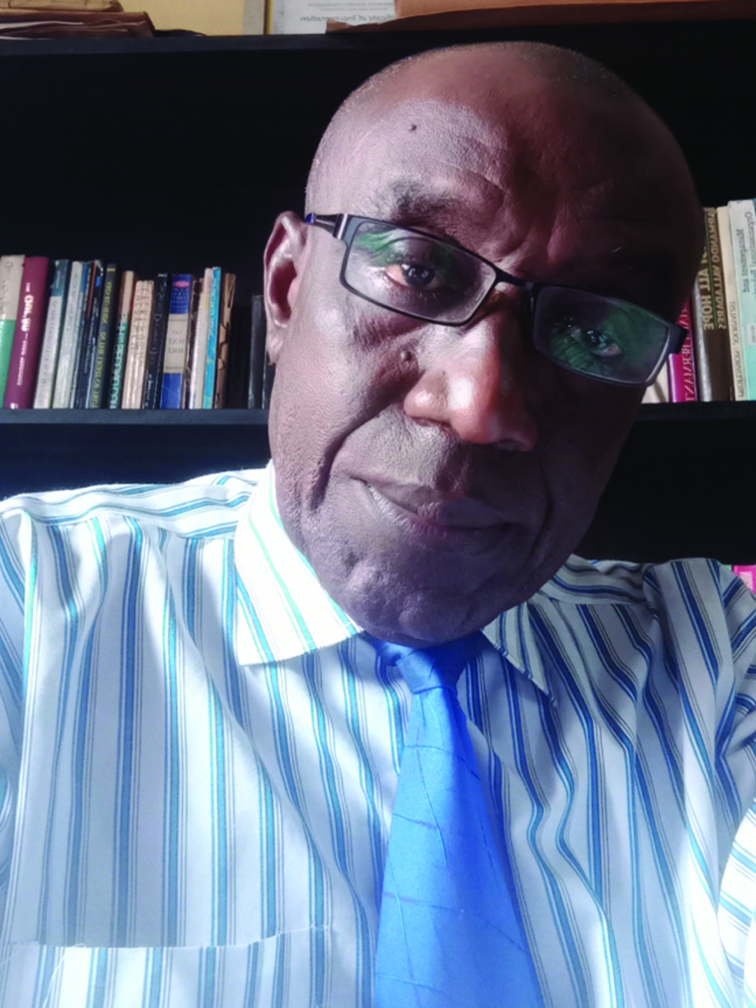By Haniel Ukpaukure
Umana Okon Umana, Minister in charge of the Ministry of the Niger Delta Affairs (MNDA), has the credentials and pedigree that cannot be challenged anywhere. In a country where poor leadership process has consistently thrown up the wrong persons, and at a critical time in its history when the search for the right leadership beckons once again, Umana is, unarguably, one of the best materials that could possibly be thrust on the centre stage for assessment.
Umana was appointed by President Muhammadu Buhari on Wednesday, July 6, 2022, to oversee the affairs of MNDA in the remaining months of the administration, after six years of meritorious and highly impactful service as Managing Director and Chief Executive Officer of the Oil and Gas Free Zone Authority (OGFZA). His achievements at OGFZA was not a surprise to many who know him, but merely added to the string of achievements he has recorded in public office, from his tenure as finance commissioner in the administration of Obong Victor Attah and as secretary to the state government in the administration of Godswill Akpabio, in Akwa Ibom State.
He came to MNDA leaving behind five oil and gas free zones, either supervising their establishment or development, namely, Onne Oil and Gas Free Zone and Brass Oil and Gas Free Zone, both in Rivers State; Warri Oil and Gas Free Zone, in Delta State; Eko Oil and Gas Free Zone, in Lagos State and the Liberty Oil and Gas Free Zone, in Akwa Ibom.
The Liberty Oil and Gas Free Zone requires a little more mention here, because it speaks volumes about the character of the person of Umana. In the aftermath of the 2015 governorship election in Akwa Ibom, Umana, who was the candidate of the All Progressives Congress (APC), fought a bitter legal battle never witnessed before in the state with Udom Emmanuel of the Peoples Democratic Party (PDP). The latter prevailed and became the governor of the state, after the Supreme Court put its final seal on the matter.
Many in Umana’s position as chief executive officer of OGFZA, in the typical Nigerian fashion, would have ensured Akwa Ibom did not benefit in any way from the activities of the agency, so the credit would not go to the PDP administration of Emmanuel. We saw that happen in Rivers State, where the bitter feud between Rotimi Amaechi and Governor Nyesom Wike denied the state any federal project for the seven years the former was minister for transportation.
Umana ensured Akwa Ibom got approval of the federal government for the establishment of the Liberty Oil and Gas Free Zone. In his consideration, the project is for the people of the state, not for Governor Emmanuel or PDP, not even for the APC government in Abuja. That approval would never come, under some people. So far, 12 firms have made investment commitments of up to $6 billion in the zone that is expected to be the fastest growing free trade zone in Africa.
I align myself with those who feel Umana’s appointment as minister of MNDA should have come much earlier, because of the strategic importance of that ministry to the development of the Niger Delta. This is against the background of the limited time the Buhari administration has left. I am wondering what the man who many believe is an epitome of success can achieve in about six months.
Umana has a myriad of issues to contend with, all of them bordering on the development of the Niger Delta region. There is the contentious forensic audit of the Niger Delta Development Commission that took virtually the entire attention of Umana’s predecessor, Akpabio, completely overshadowing whatever attempts the latter made towards any meaningful impact on the lives of the people of the region. Nigerians are still awaiting the action of the federal government regarding that exercise.
One project that should occupy Umana’s attention as the government begins the gradual winding down of its tenure is the East-West Road that has been under construction since Jesus Christ left. I doubt if there is any accurate record of how much has been sunk into the project that has survived four ministers before Umana’s coming. The amount in the public domain is N726 billion. It could be more. That the project has remained a conduit for siphoning of tax payers’ money for over 13 years is no longer news. What would be news is its completion. Akpabio said in March that the road had reached 80 per cent completion stage, with N10.4 billion required to complete it.
The minister gave a firm assurance of the government’s commitment to completing the road at the fifth National Council on Niger Delta meeting in Uyo, recently. Is this achievable in six months? Perhaps.
Many have begun to doubt the government’s ability to complete the Second Niger Bridge, no thanks to the incoherent statements that have emanated from official quarters, lately. It shouldn’t be recorded against Buhari that the East-West whose construction has dragged longer than that of the Second Niger Bridge also outlasted his administration, after two presidents. The man that will drive the process to ensure that does not happen is Umana, working in collaboration with his colleague in the Federal Ministry of Works and Housing – Babatunde Fashola.
By the time the Buhari administration comes to an end, it should be recorded that Umana, it was, who supervised completion of the road that is the most strategic to all the southern states and, to some extent, the country.
Ukpaukure, a media/publicity consultant and writer, lives in Lagos.
hanielu@yahoo.com


